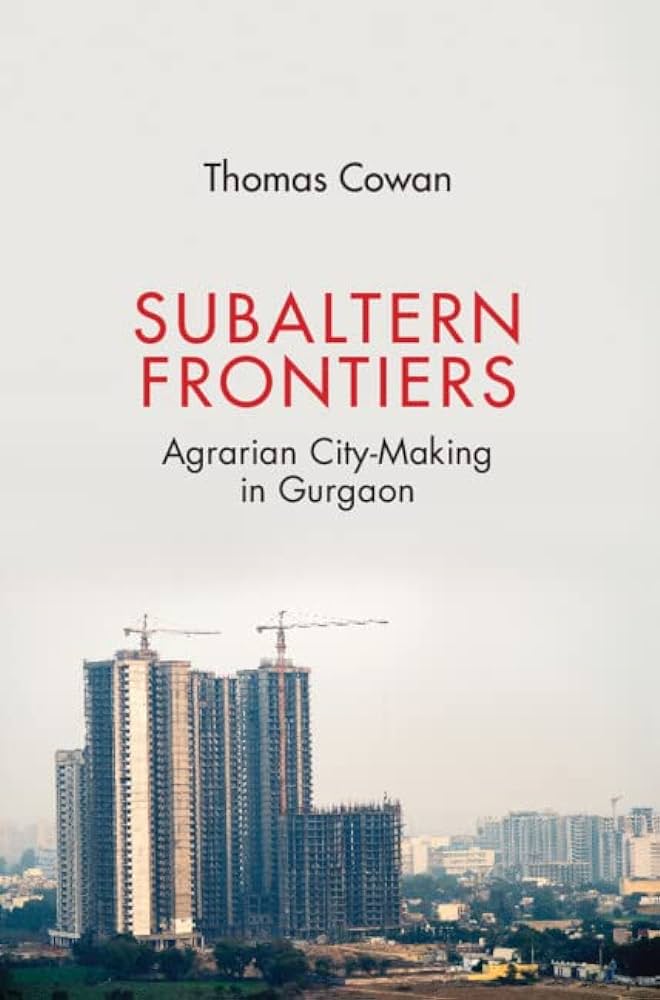W
hen does war begin or end? Where does war take place? Who lives a life protected from militarized violence, geographically or historically? How are the effects of warfare felt across spaces and times, by whom, and in what ways? The contributors to this forum pose these questions in relation to everyday landscapes and locations. The pieces gathered here explore some of the outer reaches of modern militarization, in order to explicate new historical and geographical insights on the legacies of colonialism, imperialism and environmental extractivism. From walking amidst landmines in Colombia to harvesting kelp to make explosive munitions, from re-occupying Indigenous land for recreational hiking or recovering the military history of a university arboretum, to the social media of military recruitment, these short articles explore the porous line between the exceptional and the quotidian, military and civilian, and the particularity of place and the universality of ideology. As brief instigations, they remind us of the violence embedded in seemingly banal sites, “hidden in plain sight” and propose further questions and topics to engage between what can and cannot be seen.
This forum emerges from over a year of collaborative work between the Critical Militarization, Policing, and Security Studies research group at the University of California, Davis and the Everyday Militarisms research group at the University of Sydney. Across two international meetings and several continuing projects, this interdisciplinary initiative refuses both the simple celebration or condemnation of militarization in order to reorient how militarism and militarization are narrated, studied, and understood. We start with a focus on everyday social, cultural and environmental life in order to examine how and why military infrastructures are rendered less visible or barely palpable. Because everyday militarisms are generated through and beyond the nation-state and its colonial occupations and imperialist operations, this work must maintain a concern with how the gendered, classed, colonial, racialized, and environmental dimensions of militarism are entwined and even co-constitutive. Accordingly, we take seriously Indigenous and other marginalized knowledges in the effort to create new histories and theoretical approaches. We aim to build an understanding that militarism not only works through the conventional mechanisms of warfare but also increasingly permeates everyday life. We begin to see how militarized conditions saturate our surroundings, with different temporalities, scales and legacies.
Feminists have long insisted on the valence of the everyday as a way to bring the grounded activities and materials of embodied lives into critical consideration. From the quotidian banalities, punishments and rewards of domesticity alongside labor outside the home to the ontological properties of objects, the everyday has become an accepted rubric of social analysis. Yet, as interdisciplinary scholars in the humanities and social sciences, we have encountered resistance to the study of the military in our respective fields. Many of us have been told that it is a “narrow” subject and should be left to the niche of military history, or that we should join our insights to pre-established disciplines, accepting their prior epistemological claims as saying all that needs to be said. Especially for those of us sited in the US—a nation that has been at war almost continually since its inception and that organizes much of its economy around an always swelling military budget—the suggestion that militarism and militarization are “too narrow” and not significant to the study of gender, race, class, and sexuality or even to colonialism or the environment is baffling. Since war is now increasingly global, always already linked by circuits of transnational capital, services, and goods and the movements and displacements of people, everyday militarism is an urgent topic for all of us. If the military and its official wars are worthy of study and analysis in circumscribed fields, the nuances of everyday militarism bring considerations of state violence, territorial occupations, and power inequities into any field of study. How was this dam built? What is the genesis of this smart phone in my hand? How is container shipping done? Refracting in or out, when we begin to ask how militarism structures key subjects or objects in our work, we not only discover new information or examples, we also come to understand our areas of study in new ways—uncovering what has often been “hidden in plain sight.”
For this Society & Space Forum, we asked the contributors to draw from work in progress on militarized connections that are deeply embedded in place or practice yet not always directly in view or available for immediate critique. Each piece assumes a position of engaged intimacy with a specific site while working to disturb or dislodge conventions of thought and practice. Moving well beyond visual sight to explore other modes of perception and knowledge, these texts explore political entanglements and connections across difference to prompt new investigations and critical work. In exploring the relationship between sight and site, visibility and invisibility, sovereign sensing and sovereign policing, each operates as a provocation alerting us to our ordinary dependencies on militarized surrounds. More so, these essays are a call to re-energize older concerns with Eisenhower’s famous call to regard the military industrial complex, here rendered in new, old, haunting and virtual capacities. While warfare must have a place in critical thought, so too the ambient links that suture our worlds to militarized complexes must be indexed. So doing, our work opens a key question for catastrophic times: is it possible to imagine a non-militarized form of existence?
Caren Kaplan is Professor Emerita of American Studies at the University of California at Davis and the author most recently of Aerial Aftermaths: Wartime from Above (Duke UP, 2018) and co-editor with Lisa Parks of Life in the Age of Drone Warfare (Duke UP, 2017).
Gabi Kirk is a PhD candidate in Geography at the University of California at Davis, writing a dissertation on sustainable agriculture and settler colonialism in northern Israel-Palestine and California.
Tess Lea is an Associate Professor in the Department of Gender and Cultural Studies at the University of Sydney. She is the author of Darwin (NewSouth Books, 2014) which explores how this little known frontier town is an American garrison in sleeper mode, and Wild Policy: Indigeneity and the Unruly Logics of Intervention (Stanford UP, forthcoming 2020) which probes the interrelationship between militarized trade arrangements and Indigenous social policy in Australia.




















